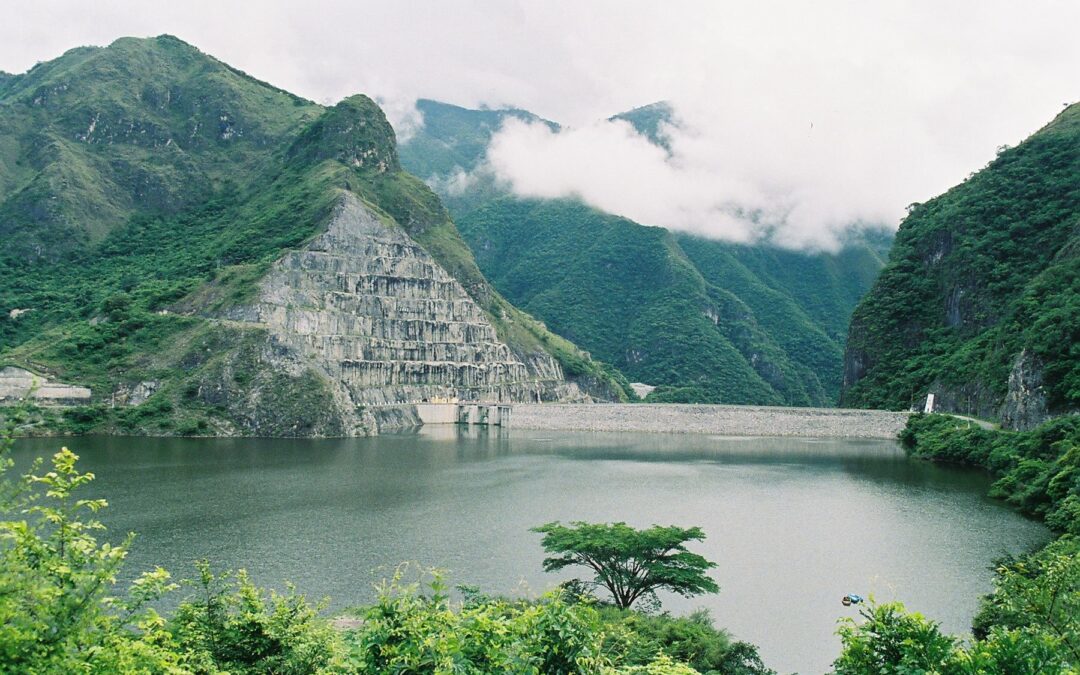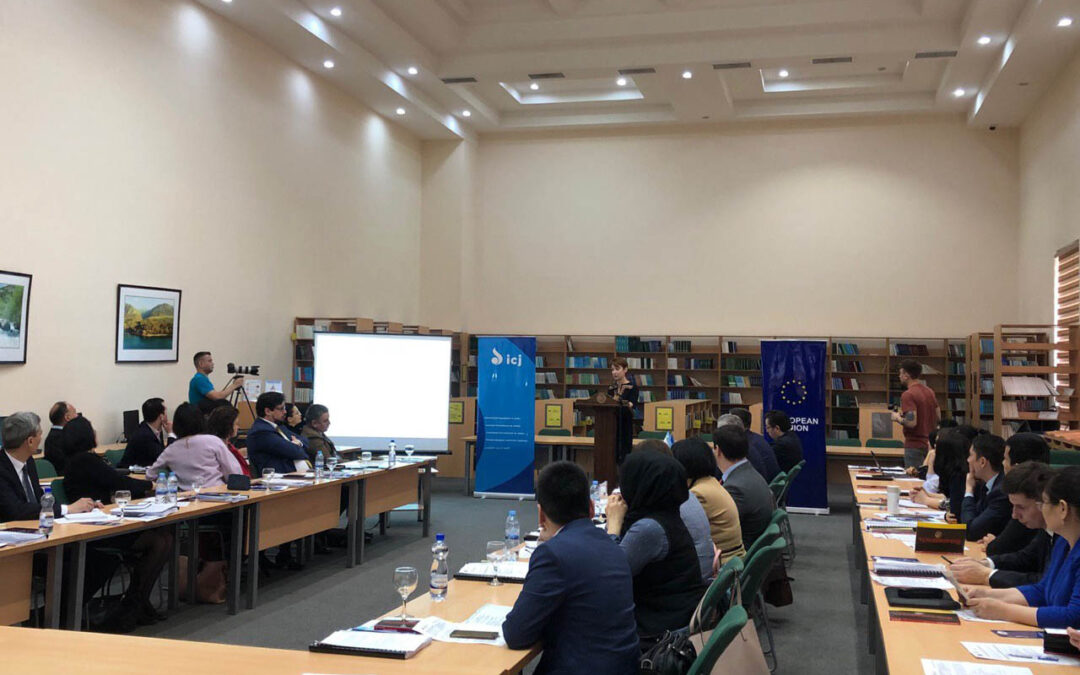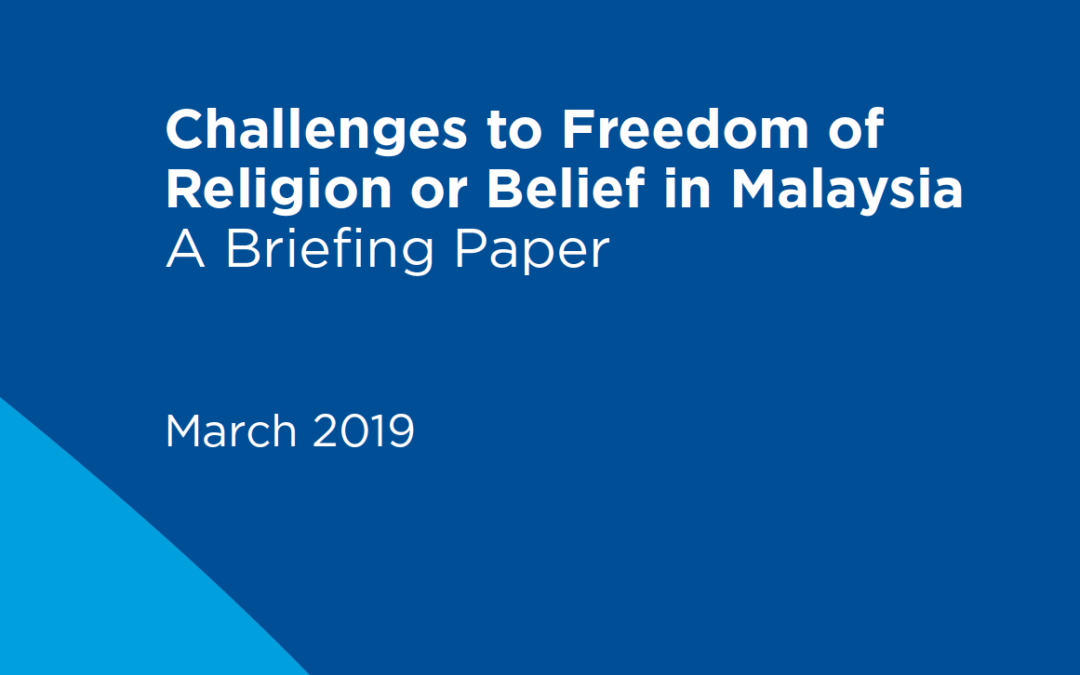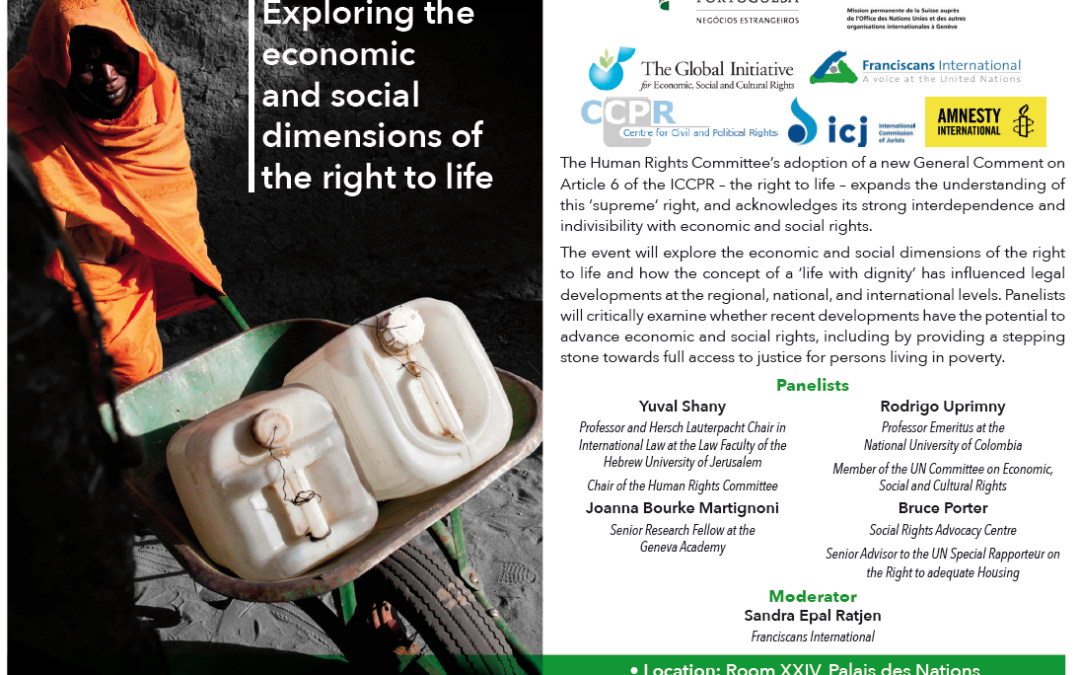
Apr 4, 2019 | News
Today, the ICJ urged Singapore’s Parliament not to pass the Protection from Online Falsehoods and Manipulation Bill 2019 (‘Online Falsehoods Bill’), which was tabled on Monday, 1 April.
The ICJ said that the bill, if passed into law, would result in far-reaching limitations on freedom of expression, opinion and information in Singapore, and could be wielded to curtail important discussion of matters of public interest, including content critical of the government.
“This bill, if passed, would make the government the sole arbiter of what information is permissible online and what is not, creating a real risk that the law will be misused to clamp down on opinions or information critical of the government,” said Frederick Rawski, ICJ Director for Asia and the Pacific.
The bill authorizes ministers to direct individuals, owners or operators of online platforms, digital advertising and internet intermediaries to remove, make corrections to, disable or block access to a “false statement of fact”, if such action is deemed to be “in the public interest”. Such ministerial directions can be made even if a false statement “has been amended or has ceased to be communicated in Singapore”.
The bill does not provide any real definition of “false statement of fact” and does not clarify what constitutes “public interest”. The bill also fails to provide for exceptions or defences such as honest mistake, parody, artistic merit, or public interest. Executive discretion is also not subject to judicial review or oversight under its provisions.
Criminal penalties for non-compliance with the law are severe, and include hefty fines and up to ten years’ imprisonment for violations.
These may be imposed on individuals and/or owners or operators of online platforms, as well as intermediaries who facilitate the communication of such statements, including social networking services, search engine services, internet-based messaging services and video-sharing services.
The bill is also clear that communications through SMS (Short Message Service) and MMS (Multimedia Messaging Service) fall under its remit.
“The spread of misinformation online is a complex problem that cannot be effectively addressed by simply granting broad discretion to government officials to censor online expression,” said Rawski.
“A multi-pronged approach that protects the rights to free expression, opinion and information is required, beginning with better media literacy education and free access to information, including to opinions critical of the government,” he added.
Contact
Frederick Rawski, ICJ Asia Pacific Regional Director (Bangkok), e: frederick.rawski(a)icj.org
Singapore-fake news bill-News-web story-2019-ENG (full story with additional information, in PDF)

Apr 2, 2019 | Comunicados de prensa, Noticias
La CIJ lamenta que el Presidente de la República y otros funcionarios del Organismo Ejecutivo, se resistan a dialogar con las y los representantes de las Comunidades Afectadas por la Construcción de la Hidroeléctrica Chixoy (COCAHICH).
Las Comunidades Afectadas por la Construcción de la Hidroeléctrica Chixoy (COCAHICH) han llevado a cabo una negociación de más de diez años con las autoridades del Estado de Guatemala, que culminó con la aprobación de un Plan de Reparación de los daños y perjuicios causados por la construcción de la Hidroeléctrica Chixoy y la respectiva Política Pública para la reparación a las víctimas, contenida en el Acuerdo Gubernativo 378-2014.
Lamentablemente, las autoridades del actual Gobierno no han cumplido con su correcta implementación y se ha venido dando un retardo malicioso, que perjudica notablemente los derechos de las víctimas a la reparación colectiva, retardo que re-victimiza a las personas y una vez más, viola los derechos humanos de las víctimas.
Es importante recordar que existe un principio general del derecho, que afirma que los compromisos adquiridos mediante convenios, pactos o acuerdos, deben cumplirse de buena fe.
Ante dicho retardo, las comunidades se encuentran ejerciendo su derecho de protesta pacífica y han solicitado una audiencia con las autoridades al más alto nivel, quienes durante todo el día lunes 1ro. de abril, se negaron a recibirlos.
La CIJ hace un llamado al Presidente de la República, para que reciban a las y los representantes de COCAHICH y sus asesores, para que se pueda solucionar el asunto por la vía del diálogo. La CIJ está convencida que este asunto requiere de un diálogo franco y de buena fe.
Ramón Cadena, Director de la CIJ para Centro América expresó: “El Presidente de la República debe respetar el diálogo y evitar que los derechos de las víctimas vuelvan a ser violados y debe honrar los compromisos adquiridos en el Plan de Reparaciones e instruir a todos los funcionarios de las entidades involucradas, para que tomen las acciones que sean necesarias y asi cumplir inmediatamente con los compromisos contenidos en el mismo.”

Mar 12, 2019 | Multimedia items, News, Video clips
Today, the ICJ and the Tashkent State University of Law (TSUL) in partnership with the UN Human Rights Office in Central Asia are organizing this event. The topic of the Third Expert Discussion is rights of persons with disabilities.
The Expert Discussions are part of “Access to Justice in Economic, Social and Cultural Rights Project (ACCESS)” supported by the European Union.
The Expert Discussions are aimed at increasing awareness about the implementation of international law and standards on ESC rights by national courts, to facilitate access to justice in relation to ESC rights and effective use of international human rights law for ESC rights at the national level.
Each Expert Discussion is supported by presentations of international and national experts.
The first experts’ meeting was held in September 2018 on international standards in labour rights, and the second meeting – held in December 2018 – on the principle of non-discrimination in courts and court decisions.
The two events brought together lawyers, defense lawyers, individual experts, academia representatives and law students via interactive discussions, research papers, peer review articles and policy papers. Selected papers will be published in collection of scientific articles by the end of 2019.
Mansurkhon Kamalov, the Deputy Rector of TSUL, said: “We have already held two expert discussions on the right to work and the principle of non-discrimination in courts together with the ICJ with the support of the European Union. Each event touched upon international and national standards and legal regulation of specific ESC rights. Our meeting today is organized on the eve of celebrating the day when independent Uzbekistan became a full member of the UN; and it raises a very relevant topic not only for the country, but also for the international community as a whole. The TSUL is pleased to cooperate with the ICJ, which helps increase public awareness about international legal norms and standards in the field of ESC rights and practice of their implementation at the national and international level; access to justice with regard to ESC rights, as well as the effective use of international human rights law to protect these rights at the national level.”
Ryszard Komenda, Head of the UN Human Rights Office in Central Asia, said: “Today, about 10 per cents of the population are persons with disabilities. Persons with disabilities are the largest minority in the world. This figure is constantly increasing as a result of demographic growth, progress in healthcare systems, and the overall population aging patterns, according to WHO’s world data. In the framework of the Universal periodic review (UPR) of Uzbekistan, that was held for the third time in May 2018, a number of the UN Human Rights Council members called on Uzbekistan to ratify the Convention on the Rights of Persons with Disabilities and welcomed measures that have been already in the process of implementation with the aim to ensure the rights of persons with disabilities in the country. According to the UPR outcome document, the Republic of Uzbekistan accepted relevant recommendations and declared its intention to ratify the Convention. Ratification of the Convention on the Rights of Persons with Disabilities will be a significant step in further promoting and ensuring implementation of international human rights standards in the Republic of Uzbekistan.”
Dmitriy Nurumov, ICJ Legal Consultant, said: “Access to justice, which includes a fair trial and equality before the law, is of particular importance for people living with a disability, who often face inter-sectional and multiple barriers to access justice. The ICJ believes that inclusive societies in which all individuals have equal access to justice, require identifying and overcoming systemic and practical barriers that hamper equal access to justice, including in enjoyment of ESC rights. The ICJ hopes that today’s discussion will map out such existing barriers and the ways they can be overcome.”
Contact:
Dilfuza Kurolova, ICJ Legal consultant, t: +998 90 9050099 ; e: dilfuza.kurolova(a)icj.org
Watch the video here:

Mar 11, 2019
A new ICJ report examines the right to freedom of religion or belief in Malaysia, analyzing the country’s legal framework to identify protections of and limitations on the exercise of this right in law and in practice.
The report highlights that jurisdictional disputes affecting the adjudication of matters relating to religion and belief – between civil courts which apply federal and state laws, and Syariah courts, which apply Islamic laws – have emerged as the main arena of contestation.
These disputes have arisen amidst a national legal framework where there remains a lack of clarity in existing jurisprudence and law about the dual jurisdictional regime and insufficient legal safeguards exist to protect the rights of individuals with respect to personal and family matters concerning religion and belief.
Protective mechanisms for persons who wish to change or adopt a new religion also remain inadequate in law, while laws have been misused in practice to curtail the right to religion and belief of religious minorities.
The report explains the general international legal framework governing the right to freedom of religion or belief, before highlighting several concerns relating to the protection and promotion of this right in Malaysia. These include:
- Discrimination against religious minorities;
- Limitations on the rights of children relating to personal matters governed by Islamic Law;
- Discrimination against persons who wish to change or adopt a new religion;
- Criminalization and prosecution of proselytism among Muslims;
- Prohibitions on the use of the word ‘Allah’ by non-Muslims;
- Criminalization of free expression through the crime of sedition.
These concerns are detailed in the report. In light of these challenges, the report offers a number of recommendations to the Government of Malaysia to assist authorities in ensuring Malaysia’s legal framework is implemented in accordance with international human rights law and fully protects the right to freedom of religion or belief.
The report situates its legal analysis within Malaysia’s socio-political context, where religion and ethnicity play significant roles in politics and society, and concerns are emerging of rising intolerance against religious and ethnic minorities.
This report is part of a series of ICJ publications on the right to freedom of religion or belief, produced with the support of the International Panel of Parliamentarians for Freedom of Religion and Belief (IPPFoRB).
Contact
Frederick Rawski, ICJ Asia-Pacific Regional Director, frederick.rawski@icj.org
See also
New primer on freedom of religion or belief in international human rights law
New briefing paper: challenges to freedom of religion or belief in Nepal
Download
Malaysia-Freedom of religion Exec sum-Advocacy-Analysis brief-2019-ENG (executive summary, in PDF)
Malaysia-Freedom of religion brief-Advocacy-Analysis brief-2019-ENG (full report, in PDF)

Mar 4, 2019 | Events, News
This side event will take place on 6 March, from 13.30-15.00, in Room XXIV of the Palais des Nations in Geneva.
The Human Rights Committee’s adoption of a new General Comment on Article 6 of the ICCPR – the right to life – expands the understanding of this ‘supreme’ right, and acknowledges its strong interdependence and indivisibility with economic and social rights.
The event will explore the economic and social dimensions of the right to life and how the concept of a ‘life with dignity’ has influenced legal developments at the regional, national, and international levels. Panelists will critically examine whether recent developments have the potential to advance economic and social rights, including by providing a stepping stone towards full access to justice for persons living in poverty.
Speakers:
Yuval Shany, Professor and Hersch Lauterpacht Chair in International Law at the Law Faculty of the Hebrew University of Jerusalem, Chair of the Human Rights Committee and Rapporteur for General Comment 36.
Rodrigo Uprimny, Professor Emeritus at the Professor Emeritus at the National University of Colombia, Member of the Committee on Economic, Social and Cultural Rights, ICJ Commissioner.
Bruce Porter, Executive Director, Social Rights Advocacy Centre, Chief Advisor to the UN Special Rapporteur on the right to adequate housing.
Joanna Bourke-Martignoni, Senior Research Fellow, Geneva Academy of International Humanitarian Law and Human Rights.
Moderator:
Sandra Epal Ratjen, International Advocacy Director and Deputy Executive Director, Franciscans International.
Universal-R2Life and ES rights-News-events-2019-ENG (Concept note in PDF)









